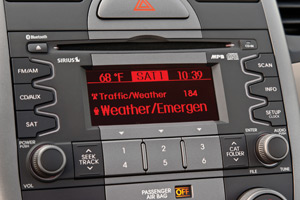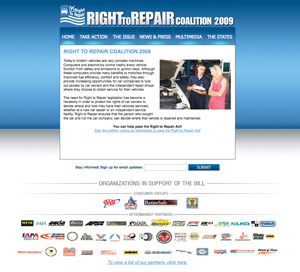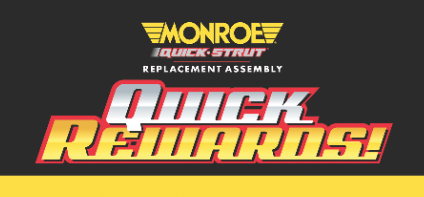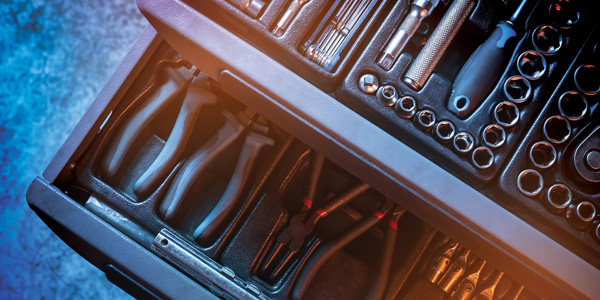 The past few years have seen rapid change in automotive technology. More and more hybrid models are being introduced, with nearly 1.5 million already being sold to date. Direct gasoline fuel injection is replacing port fuel injection on more and more engines. Many late-model engines are also equipped with variable valve timing (VVT) to improve performance, and a growing number are using cylinder deactivation to improve fuel economy.
The past few years have seen rapid change in automotive technology. More and more hybrid models are being introduced, with nearly 1.5 million already being sold to date. Direct gasoline fuel injection is replacing port fuel injection on more and more engines. Many late-model engines are also equipped with variable valve timing (VVT) to improve performance, and a growing number are using cylinder deactivation to improve fuel economy.
Electric steering is replacing hydraulic power steering. Six-speed electronic automatics and Continuously Variable Transmissions (CVT) are becoming the new norm. Anti-lock brakes, traction control and stability control are now standard on a majority of late-model cars and trucks. Infotainment electronics, such as DVD players and factory GPS navigation systems, that were once only offered on high-end luxury vehicles are now available on entry-level vehicles as well. Bluetooth interconnectivity with MP3 players and cell phones is the latest feature that everybody wants so they can be “plugged into” their vehicles.
Add to these changes a whole new generation of safety add-ons such as tire pressure monitoring systems (TPMS), braking assist, collision mitigation braking, lane departure warning, adaptive cruise control, parking assist, etc., and it’s obvious that today’s cars contain a lot of high-tech gadgetry.
All of these new technologies are great as long as they are working correctly. But when something fails, who fixes it? The new car dealer, in most cases. Vehicle manufacturers are offering their buyers longer and longer factory powertrain warranties (up to 100,000 miles or more). The factory warranty on most hybrid powertrain components and the high-voltage battery is 10 years or 150,000 miles!
The rapid pace of change in automotive technology combined with longer factory warranties and limited access to service information and parts for late-model, non-emissions related systems is making it harder and harder for independent repair shops to compete with new car dealerships. Independent shops typically don’t see a late-model vehicle until it is out of warranty. But even then, they may not be able to diagnose or repair some of these new high-tech systems because they (1) don’t have the required factory software for their scan tools, or (2) the service information is unavailable except to the new car dealers.
Current EPA regulations require all emissions-related service information to be available to independent repair shops, which it is for the most part. But it isn’t free. You have to pay a subscription fee to access most of the information (see www.nastf.org for a list of OEM service information websites and access fees). Nor is the information complete. There may be gaps in coverage, and as I said before, non-emissions related service information may be missing or restricted.
The Right To Repair Act (H.R. 2057) recently introduced by Rep. Edolphus Towns, D-New York, would require the car makers to provide the same service information to independents that is currently available to their own dealers (with some exceptions for anti-theft systems for obvious reasons). That would make it easier for our readers to compete with the new car dealers.

The Right To Repair Act is also pro-consumer because it gives motorists the option of taking their vehicle to an independent repair shop once their vehicle is out of warranty. As we all know, independent repair shops are usually cheaper than dealerships, more conveniently located, more personable and customer-friendly than big mega dealerships. Repair shop technicians are just as capable as their dealership counterparts, and can perform the same quality of repairs – provided they can access the same service information and use the same scan tool software that the dealerships use. Without that information, they are at a severe disadvantage. And without the factory scan tool software, they can’t even access many of these systems, let alone diagnose and repair them.
The vehicle manufacturers oppose the Right To Repair Act on the grounds that it infringes on their intellectual property rights. That’s nonsense. The only thing it would infringe on is a monopoly on repair work and their dealer’s potential profits.
The auto industry has had a rough year, and many dealerships have gone out of business. That means fewer dealers to choose from, and more big mega dealers with a monopoly on local service markets. This is all the more reason why consumers need a Right To Repair Act so they are not at the mercy of the mega dealers once their vehicles are out of warranty.
Another feature of the Right To Repair Act would allow vehicle owners to choose where diagnostic data generated by their own cars is transmitted. General Motor’s OnStar system is a great option with its navigation and safety features. But its diagnostic capabilities also give the dealer first crack at the vehicle owner if a vehicle has a problem or sets a fault code. Is it convenient? Yes, for the dealership. Is it competitive? Not at all, because the independent shop is shut out of the loop.
By controlling who has access to vehicle data, computer codes and the specialized tools and software that are necessary to service late model vehicles, the auto makers are locking out independent shops and forcing vehicle owners to return to the dealership after their new car warranty runs out.
For more information on this issue, visit www.RightToRepair.org.








